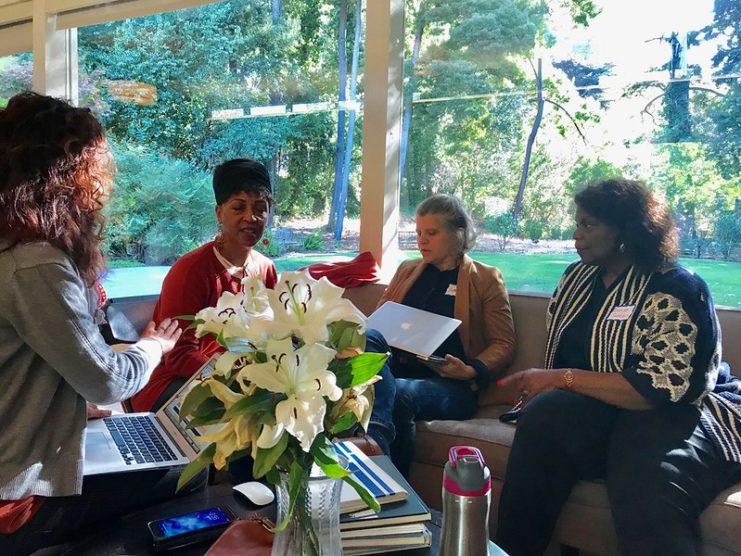
Supporting Principals to Build Their Adult Learning Culture
A principal sits across from a Mills Teacher Scholars facilitator in the middle of a room full of her fellow principals, her superintendent, her district leaders, and thinks aloud about the adult learning spaces at her school. She has collected perception data from her teachers through a survey and is articulating her questions about her adult learners:
Are teachers clear about the goals for professional learning?
What do the adult learning conversations in our PLC’s sound like?
How do I know if these conversations are resulting in change of practice and ultimately impacting student learning?
The principal is then probed by a Mills Teacher Scholars facilitator to pick one of these questions to pursue in the public conversation they are having together. In order to support their ability to facilitate this public learner model at their sites, principals are asked to be meta about what the principal learner and the Mills Teacher Scholars facilitator are doing to make this a learning conversation.
After this public learning model, each school leader has the opportunity to engage in a structured conversation with colleagues on how they are addressing the adult learning culture in order to meet their student learning needs. They are looking at survey data that they collected from the teachers at their site about what happens during the PLC sessions to better understand the current reality of adult learning.
It is widely accepted in the field of education that students learn best when the classroom culture invites conversation, questioning, and wondering. This is also true for adult learning, yet this reality is often overlooked when it comes to teacher learning and the learning of educational leaders.
Our district-level partnerships support school and district leaders to consider their goals for student learning and then consider what would have to be true about their current culture of adult learning and to envision what they would like to be true. We create the conditions for leaders to experience the practices and mindsets of collaborative learning that they can then support these learning experiences for teachers at their sites. In this way, districts can transform the culture of adult learning across their whole system, leading to improved student learning.
